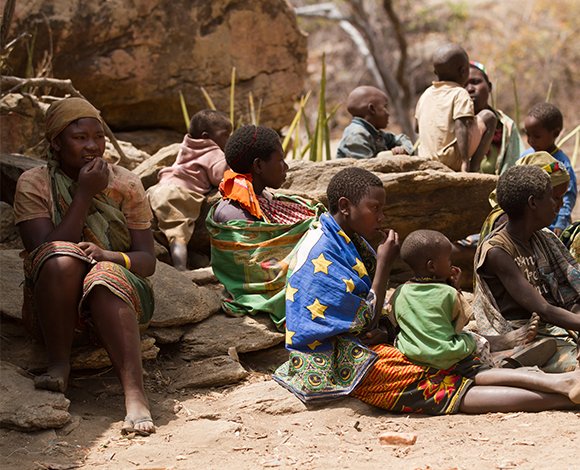社會結構分類:氏族、部落、酋邦及國家
Classifying Societies
- 出題日期
- 2017/12/8
- 命中課本
- 菁英雅思機經「歷史、社會、文化與經濟」
- 延伸閱讀
- 劍橋雅思 12-2-2 The Lost City
- 中文說明
 自古以來,儘管人類建立了多種不同型態的社會結構,社會學及人類學家根據不同族群在社會裡無法平等取得資源、威望與權力⋯⋯等狀況,通常將早期社會分成四種型態,按社會化複雜程度分別為:氏族、部落、酋邦及國家。「氏族」是一群數量不多的獵人或群居者,總人口數通常低於100人,逐水草而居(未發展過的地區);多數的獵人群聚在一起,像是坦尚尼亞的Hadza或非洲南部的San。氏族成員多數有血緣關係(直系血親或姻親),通常沒有正式的領袖,所以族人間沒有特別顯著的財富差距或太懸殊的社會地位。因為氏族通常由游牧民族所組成,他們時常遷徙到不同的地方扎營⋯⋯
自古以來,儘管人類建立了多種不同型態的社會結構,社會學及人類學家根據不同族群在社會裡無法平等取得資源、威望與權力⋯⋯等狀況,通常將早期社會分成四種型態,按社會化複雜程度分別為:氏族、部落、酋邦及國家。「氏族」是一群數量不多的獵人或群居者,總人口數通常低於100人,逐水草而居(未發展過的地區);多數的獵人群聚在一起,像是坦尚尼亞的Hadza或非洲南部的San。氏族成員多數有血緣關係(直系血親或姻親),通常沒有正式的領袖,所以族人間沒有特別顯著的財富差距或太懸殊的社會地位。因為氏族通常由游牧民族所組成,他們時常遷徙到不同的地方扎營⋯⋯- 高分單字
-
1. classify v. 將⋯⋯分類
Apples are classified according to size.
2. advantage n. 優勢;有利
蘋果按大小分等級。The advantages of the plan outweigh its disadvantages.
3. prestige n. 聲望
這個計劃的優點超過了它的缺點。Many students are attracted by the prestige of studying in top 100 colleges of the world.
4. exploit v. 利用;開發
很多學生對於在世界排名前百大的大學念書非常嚮往。They are exploiting the oil under the sea.
5. descent n. 血緣關係
他們在開發海底石油。Many Americans are of African descent.
6. disparity n. 不平等;差異
許多美國人有非洲裔血統。Although there are huge disparities of wealth and income, those are remarkable achievements.
7. compose v. 組成;構成 (be composed of sth.)
儘管他們之間存在著巨大的貧富差距,他們都達成了不可抹滅的成就。These protesters are composed of students, local residents and law legislators.
8. debris n. 碎片
這些抗議者是由學生、當地居民及立法委員所組成。Debris from the dried-painting was all over the floor.
9. subsistence n. 維持生存;生計
乾掉的油漆散落在整個地板上。After the harsh winter and failed crops, the settler’s subsistence was in jeopardy.
10. nomadic adj. 遊牧的
經過嚴冬及作物欠收之後,當地居民的生計岌岌可危。The nomadic tribe moved their camp several times a year.
遊牧民族一年內會遷徙數次。 - 看出題原文
-
Classifying Societies
Although humans have established many types of societies throughout history, sociologists and anthropologists tend to classify different societies according to the degree to which different groups within a society have unequal access to advantages such as resources, prestige or power, and usually refer to four basic types of societies. From least to most socially complex they are clans, tribes, chiefdoms and states.
Clan
These are small-scale societies of hunters and gatherers, generally of fewer than 100 people, who move seasonally to exploit wild (undomesticated) food resources. Most surviving hunter gatherer groups are of this kind, such as the Hadza of Tanzania or the San of southern Africa. Clan members are generally kinsfolk, related by descent or marriage. Clans are lack of formal leaders, so there are no marked economic differences or disparities in status among their members. Because clans are composed of mobile groups of hunter-gatherers, their sites consist mainly of seasonally occupied camps, and other smaller and more specialized sites. Among the latter are kill or butchery sites—locations where large mammals are killed and sometimes butchered—and work sites, where tools are made or other specific activities carried out. The base camp of such a group may give evidence of rather insubstantial dwellings or temporary shelters, along with the debris of residential occupation.
Tribe
These are generally larger than mobile hunter-gatherer groups, but rarely number more than a few thousand, and their diet or subsistence is based largely on cultivated plants and domesticated animals….
完整文章內容,請參閱菁英機經教材課本。
只要相信改變的力量,勇敢去改變,未來會有無限可能
相信自己!相信菁英!陪你勇敢踏出挑戰自己的第一步,創造屬於你的可能性!
線上預約諮詢
留下您的學習想法!
我們將於24小時內與您聯繫,共同規劃學習藍圖。
撥打電話聯繫
別讓前進的動力消失!立即與專員一對一討論學習計畫。
線上即時諮詢
不想等待嗎?!可與菁英專業顧問即時線上詢問;
線上諮詢服務時間:上午10:00至晚上20:00。


